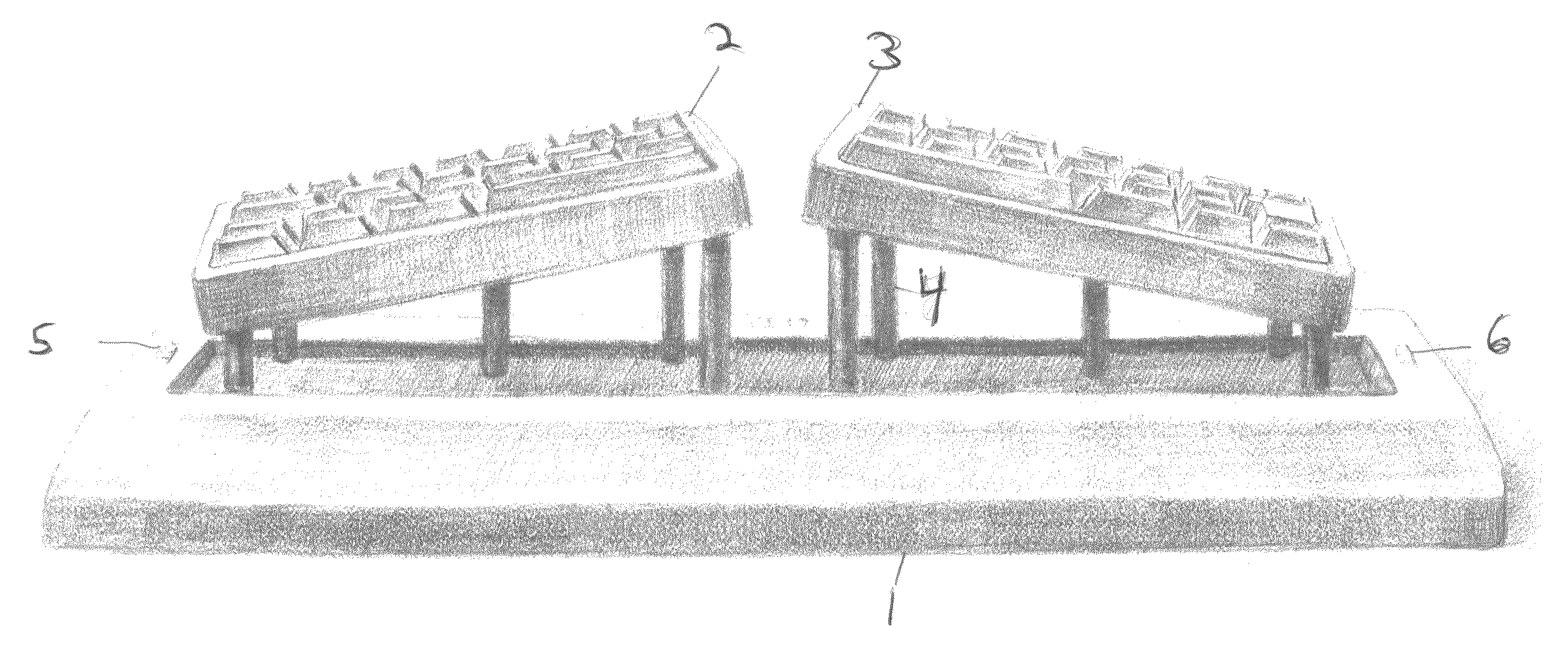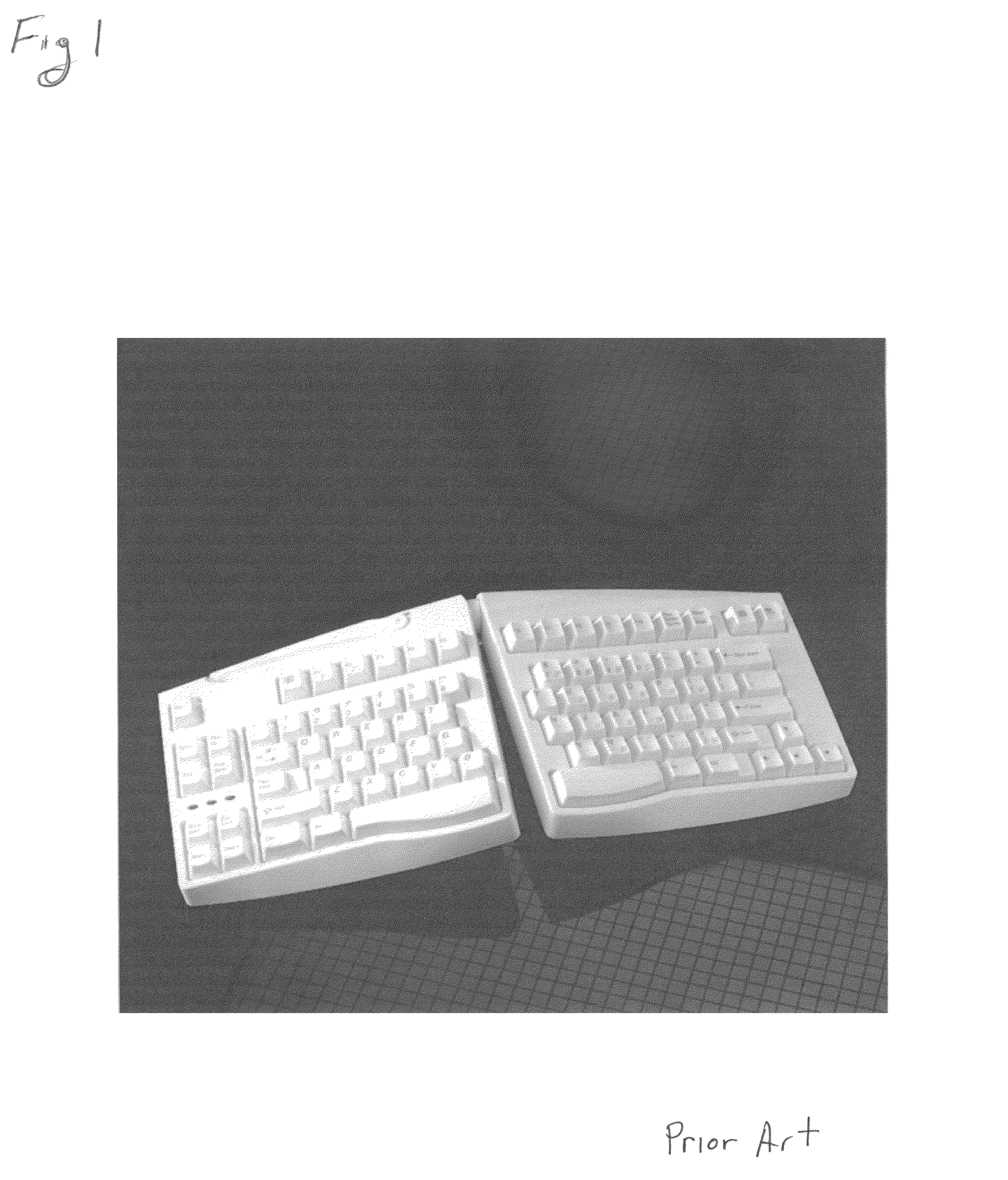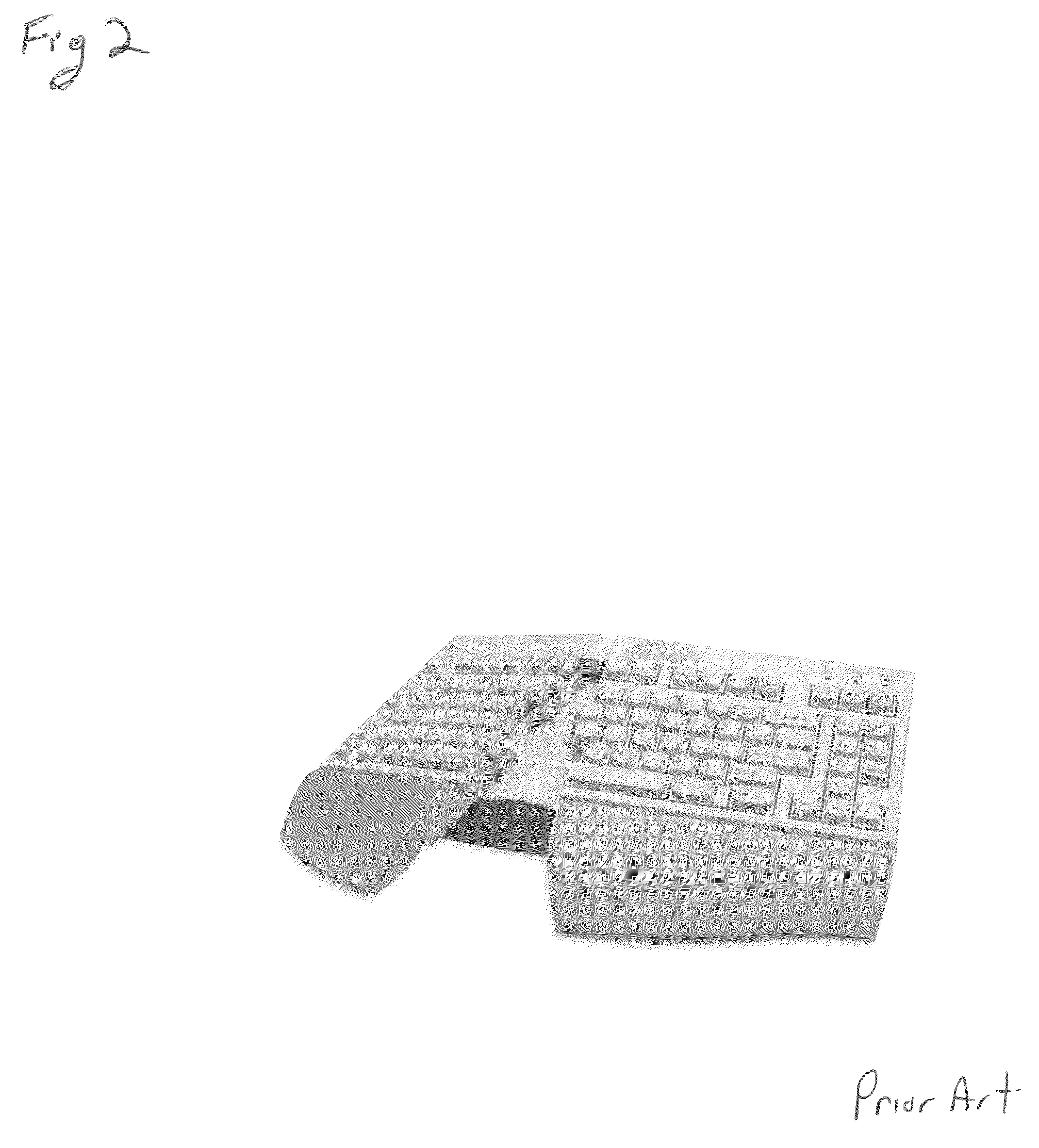Floating keyboard
a keyboard and floating technology, applied in the field of human work environments, can solve the problems of reducinglimiting the range of motion of workers, reducing the effect of static repetition in the use of keyboards, and reducing the effect of any one area
- Summary
- Abstract
- Description
- Claims
- Application Information
AI Technical Summary
Benefits of technology
Problems solved by technology
Method used
Image
Examples
Embodiment Construction
[0042]FIGS. 4 and 5 depict a split keyboard 2, 3 resting in a shell 1. Both halves of the keyboard 2, 3 have a plurality of legs 4 that extend and retract to produce movement. The legs are motor and or shaft driven and can move about 3 inches. Movements include supination, pronation, flexion, extension, rotation, as well as other movements. In one embodiment, each leg is individually controlled and able to make almost unlimited variations of changes and angles with the keyboard, depending on the needs of the user. In one embodiment, the base has moving components that move the keyboard zones.
[0043]A program that controls the keyboard could preferably be alerted to a specific condition of the user such as a left sided median nerve entrapment. The keyboard would then make an automatic deliberate set of changes to optimize the keyboard for that condition. The keyboard preferably identifies each user with biometrics, password, smart card technology, or other unique identifiers. In this ...
PUM
 Login to View More
Login to View More Abstract
Description
Claims
Application Information
 Login to View More
Login to View More - R&D
- Intellectual Property
- Life Sciences
- Materials
- Tech Scout
- Unparalleled Data Quality
- Higher Quality Content
- 60% Fewer Hallucinations
Browse by: Latest US Patents, China's latest patents, Technical Efficacy Thesaurus, Application Domain, Technology Topic, Popular Technical Reports.
© 2025 PatSnap. All rights reserved.Legal|Privacy policy|Modern Slavery Act Transparency Statement|Sitemap|About US| Contact US: help@patsnap.com



